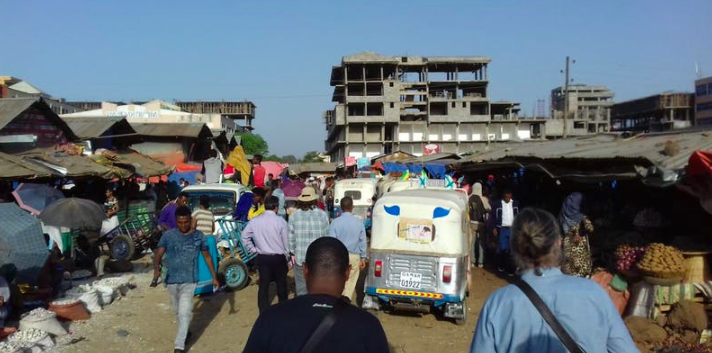Convened by Cambridge Global Challenges and Trust & Technology Strategic Research Initiatives (University of Cambridge), the Centre for Global Equality, Cambridge Wireless and Bahir Dar University.
Funded by the University of Cambridge’s GCRF Global Impact Acceleration Account.
Register

The opportunity
With 110 million people Ethiopia is Africa’s the most populous least developed country. However, with an GDP Annual Growth Rate of over 10% it has one of the fastest growing non-oil economies in the world. Further, over the past year Ethiopia has seen unprecedented political and economic reforms: since he came to power in April 2018, Prime Minister Abiy Ahmed has released political prisoners, negotiated peace with Eritrea and is making aspects of state-owned enterprises available for private investment. The telecoms and media sectors are opening up, generating a short window of unprecedented opportunity to design and roll out digital infrastructure and allied services differently. Specifically:
- Could the proverbial digital divide be more equitable and less divisive if digital infrastructures were designed by a coalition between business, government, academia and civil society?
- Does the Cambridge ecosystem have a unique set of competencies to offer, particularly regarding cutting edge technology?
- Does a mid-size city in present day Ethiopia offer a relative ‘green field’, fertile site to explore the opportunity to ‘leapfrog’ older communications technologies and create a truly smart African city?
- What are the risks and dangers associated with such an initiative, and how can these be mitigated?
We have the opportunity to explore such questions and to contribute the design of new digital infrastructure for Bahir Dar, the capital of the Amhara Regional State (population 26 million). With a population of 170,000, Bahir Dar is Ethiopia’s fifth largest city and typical of a large number of very fast-growing mid-size towns throughout Africa. The city has been identified by the government as suitable for technological investment. It is also home to Bahir Dar University, which has 40,000 students.
Cambridge Global Challenges has established a long-term partnership with the Bahir Dar Institute for Technology, which is directed by Dr Seifu Tilahun. The Institute, and the University more broadly, is interested in exploring with Cambridge partners the opportunity to establish cutting edge digital infrastructure that prioritises inclusion and equity and advances the wellbeing and economic development of all the city’s residents. The collaboration will be led by Dr Tesfa Tegene, director of the University’s ICT4D Centre, and Dr Mengiste Abate, director of the University’s office of the Bahir Dar City Infrastructure Plan Project, which is working with the municipality to develop a master plan for the city. The Bahir Dar Digital Infrastructure Initiative (BDDII) aims to contribute to this master plan through workshops in Cambridge and Bahir Dar to produce a digital infrastructure roadmap for the city.
Workshop Schedule
Cambridge Workshop (13th February 2019, Maxwell Centre)
Register here
09.30 – 13.00 Plenary
Working groups:
- Community Networks
- Risks and challenges of new digital infrastructure
13.00 – 14.00 Lunch
14.00 – 17.30 Plenary
Working groups:
- The opportunities of, and for, very new technologies (e.g. 5G, IoT)
- The needs of end-users aiming to provide services in such areas as education, health, agriculture and job creation
Representatives from Bahir Dar University and the Amhara Regional State Government will attend by video link and will set out the context, opportunities and issues.
In the morning workshop participants will identify and discuss potential risks that might be associated with the centralisation of systems, the potential for seizure and censorship, along with opportunities for next generation communications and the enablement of new approaches to social systems, commerce and agriculture.
In the afternoon discussion will focus on the technological aspects of the whole internet system. This will include backhaul, wireless, access, mobile apps, IOT and smart infrastructure.
The Cambridge workshop will be written up by a core team made up of the Ethiopian representatives and 2-4 Cambridge people who will travel to Ethiopia for the second workshop.
Bahir Dar Workshop (12-14th March 2019)
The core team will report on the Cambridge Workshops with a video link for other Cambridge participants if possible. The workshop will address practical, logistical, social, cultural, economic, political and regulatory issues and responses, hearing from local industry, researchers, etc. The road-mapping process will be initiated in Ethiopia.
The workshop will be written up the core team.
Road-mapping Drafting (25-29th March 2019)
Based on data and recommendations produced in Ethiopia, the BDDII core team will draft a project report and a staged road-map that highlights specific opportunities and risks, and offers concrete recommendations.



